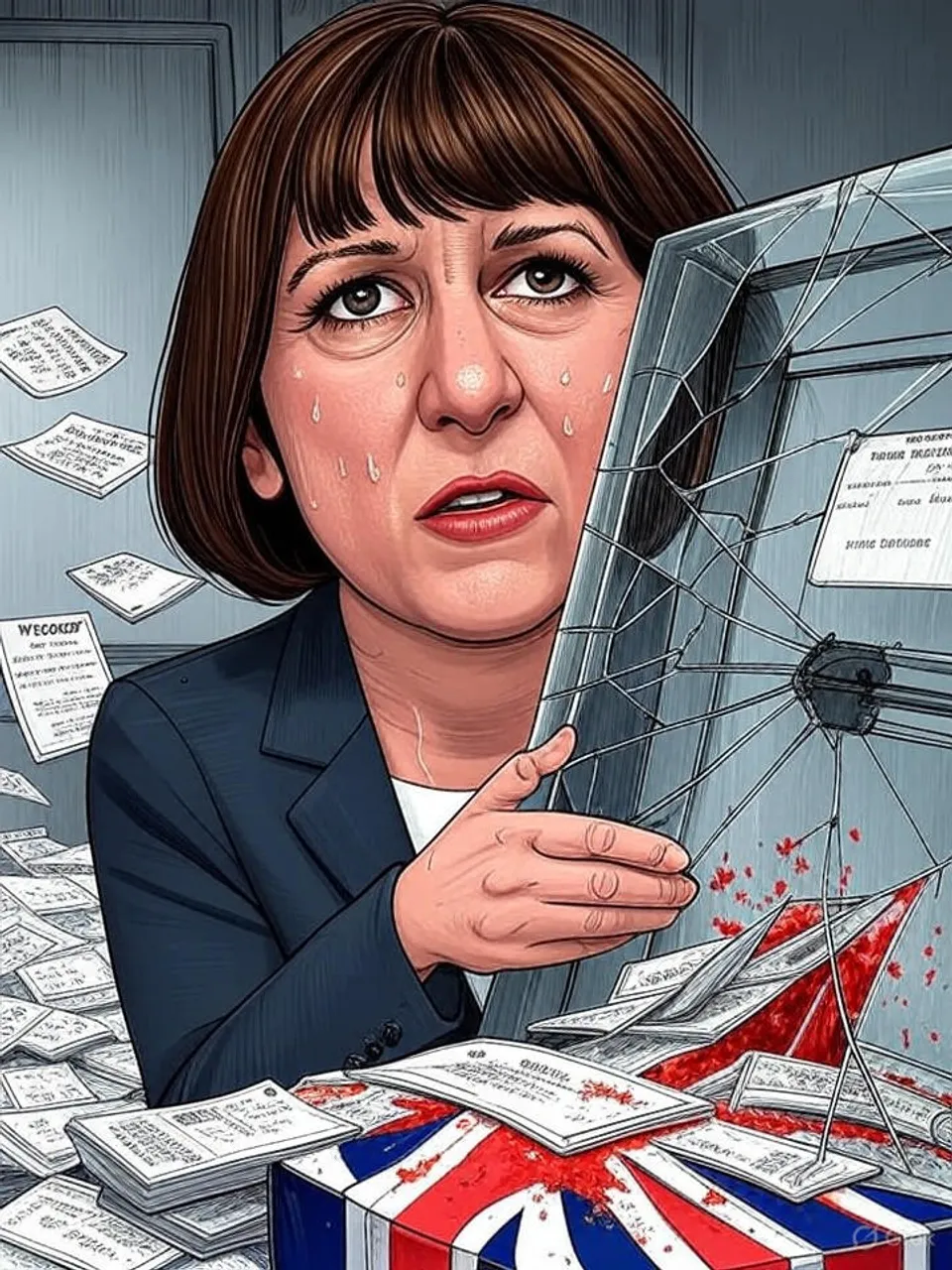Fiscal Vows Shatter Under £50 Billion Strain

Reeves Eyes Basic Rate Hike After Manifesto Breaks
Rachel Reeves warns of broad tax increases to plug a £50bn public finance gap, shattering Labour's no-rise pledge and highlighting persistent productivity failures across governments. Markets tumble as households brace for eroded living standards.
Rachel Reeves signals the end of Labour’s tax restraint, as a £50 billion public finance shortfall demands contributions from every taxpayer.
The chancellor delivered this warning in a pre-Budget speech, breaking from the party’s manifesto pledge against raising income tax, national insurance, or VAT. She framed the move as national necessity over political convenience, citing global pressures like potential U.S. tariffs under Donald Trump and downgraded economic forecasts. Markets reacted instantly: the pound dropped to a six-month low against the dollar.
This fiscal pressure stems from a £22 billion “black hole” identified upon Labour’s entry into office, now ballooned by weaker-than-expected productivity. The Office for Budget Responsibility anticipates a £20 billion deficit in forecasts tied to the upcoming Budget on 26 November. Yet the National Institute of Economic and Social Research estimates the gap at £50 billion, urging a 2p increase in the basic income tax rate to raise £20 billion and avert deeper instability.
Reeves attributes the productivity slump to the previous Conservative government’s legacy, noting lower tax revenues as a direct consequence. This marks a departure from official narratives of steady recovery; actual output per worker lags behind pre-2010 levels when adjusted for inflation. The chancellor’s buffer against fiscal rules, previously near £10 billion, now requires expansion to £30 billion or more for security.
Breaking the manifesto pledge would make Reeves the first chancellor in 50 years to hike the basic rate, last raised by Denis Healey in 1974. Labour MPs express unease, with one backbencher warning of a “doom loop” in consumer confidence as speculation delays spending. Opposition figures, from Kemi Badenoch to Richard Tice, decry the shift as confirmation of inevitable burdens on workers.
Former Treasury minister Jim O’Neill cautions that tax hikes alone won’t suffice; markets demand structural reforms in property taxes, pensions, welfare, and NHS efficiency. Without growth, he predicts renewed investor flight, echoing patterns seen in post-2008 austerity cycles. The speech avoided austerity’s return but ruled out easy paths, highlighting how fiscal rules bind hands across administrations.
This episode reveals persistent gaps in UK economic management. Governments of all stripes inherit and exacerbate deficits through over-optimistic forecasts and underinvestment in productivity drivers like skills and infrastructure. Tax rises become the default fix, eroding living standards without addressing root stagnation.
Ordinary households face immediate strain: a 2p basic rate hike extracts £500 annually from median earners, compounding inflation’s bite. Businesses, already hit by prior rates and regulations, signal hesitation in hiring and investment. Public services, promised restoration, remain starved as debt servicing consumes 10% of GDP.
The pattern endures because accountability dissolves in shared blame. Conservatives left a £22 billion void; Labour now fills it by taxing the same base it vowed to spare. No party confronts the decade-long productivity slide, where UK output per hour trails G7 peers by 20 percentage points.
Reeves insists she will not resign amid the fallout, committed to “turning the economy around.” Yet history shows such vows rarely alter trajectories: post-2010 cuts deepened inequality, while 2020s spending sprees inflated debt without output gains. Voters bear the cost, as electoral cycles prioritize short-term optics over long-term fixes.
Britain’s fiscal woes expose a deeper institutional inertia. Tax hikes patch holes but ignore why they form repeatedly—chronic underperformance in growth engines that once propelled the nation. This Budget will extract more from citizens to sustain a system that delivers less, marking another step in economic erosion.
Commentary based on Reeves puts Britain on notice of sweeping tax rises in Budget at The Independent.